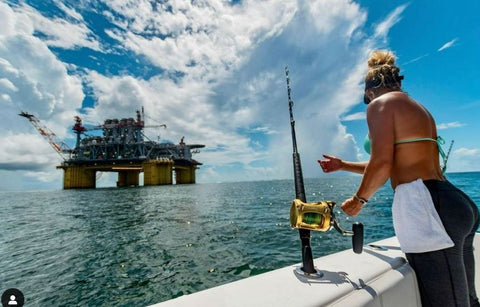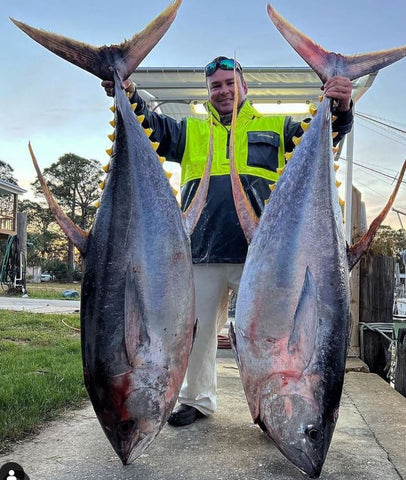Yellowfin Tuna Fishing: The Thrill of the Chase
Yellowfin tuna fishing is one of the most exciting and challenging types of fishing in the world. These powerful and elusive fish are prized for their speed, strength, and delicious meat. Anglers from around the globe flock to the waters of the Pacific and Indian Oceans to test their skills against these formidable creatures.
Yellowfin tuna, also known as Ahi tuna, are found in warm waters around the world. They are a highly migratory species that can travel long distances in search of food and ideal spawning grounds. Yellowfin tuna can grow to be over 400 pounds and are known for their long, streamlined bodies and distinctive yellow fins.

There are many methods for catching yellowfin tuna, but one of the most popular is trolling with lures or live bait. Anglers use specialized rods, reels, and lines to target these fish, often using boats equipped with outriggers to spread the lines and cover more water. Yellowfin tuna can be caught at different depths, from just below the surface to over a hundred feet deep, depending on the time of day, weather conditions, and other factors.
The thrill of yellowfin tuna fishing lies in the chase. These fish are known for their speed and agility, and once hooked, they can put up a fierce fight that can last for hours. Anglers must use all of their strength and skill to reel in these powerful fish, often relying on teamwork and strategy to land the catch.
In addition to being a thrilling sport, yellowfin tuna fishing is also an important industry that provides food and livelihoods for many coastal communities around the world. However, like many other types of fishing, yellowfin tuna fishing has come under scrutiny in recent years due to concerns about overfishing, bycatch, and the impact on the marine environment.

To ensure the sustainability of yellowfin tuna populations and protect the marine ecosystem, many organizations and governments have implemented regulations and conservation measures, such as size limits, gear restrictions, and marine protected areas. It is important for anglers and fishing communities to support these efforts and promote responsible fishing practices.
In conclusion, yellowfin tuna fishing is a thrilling and challenging sport that requires skill, strength, and perseverance. Whether for sport or sustenance, it is important to practice responsible fishing and protect the marine environment for future generations to enjoy. So, if you're up for the challenge, grab your gear and head out to the open waters for an unforgettable yellowfin tuna fishing adventure.


